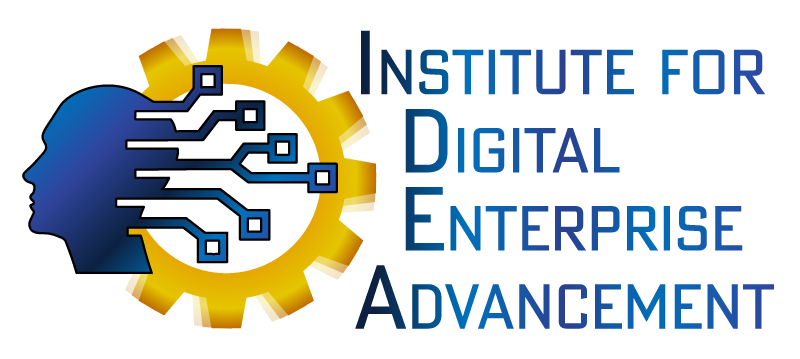
SET Academy
The Institute for Digital Enterprise Advancement launched the Systems Engineering Technology Academy to house the SET concentration for community college (six focus classes leading to either an associate degree or certificate) and professional courses for upskilling current professionals; provide consulting services for corporate, custom-tailored MBSE instruction and digital transformation; introduce middle and high school students to systems thinking through modules and workshops; and curate MBSE content for university-level students.
The SET curriculum is designed to be a concentration under a course of study such as but not limited to Computer Information Systems (Calhoun Community College and Wallace State Community College are examples) or Pre-engineering.
Six-course Systems Engineering Technology concentration for Community Colleges
Introduction to Systems Engineering: 3 credit hours [SYS101]
This course is an introduction to systems engineering (SE) and the principles of systems definition, development, and maintenance. Topics include basic understanding of systems, SE objectives, terminology and working methodology, the relationships between SE and other disciplines, the basic elements of the product life cycle, the use of modeling, and the influence of programmatic considerations. Developing an understanding of the SE methodology is emphasized. Teamwork and cooperative effort concepts are highlighted.
Systems Modeling II: 3 credit hours [SYS232]
Second in the three-course systems modeling sequence, this course increases knowledge of systems modeling concepts and focuses on the more advanced tools necessary to generate an SE model. Students discuss the digital environment and learn how to interconnect the nine diagram types to create a fully representative model. Model documentation and the team approach to project management and execution are emphasized.
MBSE in the Digital Environment: 3 credit hours [SYS221]
This course builds on prior coursework and experience in systems modeling and database design/management. It introduces students to disparate model and data types, methods to gather data from multiple sources, and processes to transform data for incorporation into SE models. Emphasis is placed on modeling programs, data structures, languages, and platforms commonly used in specific industries.
Systems Modeling I: 3 credit hours [SYS231]
First, in the three-course systems modeling sequence, this course introduces the concept of systems modeling. The course focuses on the tools necessary to generate an SE model representative of a given system. The nine diagram types utilized in modeling and their functionalities are emphasized.
Systems Modeling III: 3 credit hours [SYS233]
Third in the three-course systems modeling sequence, this course further promotes systems modeling comprehension. Students prepare to present models to industry management and convey important metrics obtained from the model. Methods of determining model scope and planning content are emphasized.
CAP: Capstone Project: 3 credit hours [SYS241]
This course includes a real-world project in support of an industry partner. Working as a team, students interact with the customer and develop an understanding of the objectives, deliverables, and the proposed or existing system. Students evaluate available documentation and existing models to determine a project schedule and work breakdown structure. Based on customer input, evaluation of the system, and recognition of the objectives of the project, students determine the scope and focus of the needed model. The student team designs, documents, builds, tests, and utilizes a realistic model for that system. Students also identify maturity paths for that model and opportunities to connect to other digital tools.
Is your organization interested in making an indelible impression on aspiring MBSE modelers? Capstone course sponsorships fund the creation of content featuring a unique, real-world scenario! For information on Capstone sponsorship and all courses:
INCOSE remains committed to addressing the evolving skills, knowledge, and qualifications that support the ongoing digital engineering transformation by engaging with key stakeholders in industry, government, and academia. The introduction of a systems engineering technician/modeler to the systems engineering modeling team is gaining traction as a range of skills-based expertise is being recognized in the design, development, deployment, and maintenance of complex systems.
Tony Lindeman, ESEP-Acq, PMP
President, Huntsville Regional INCOSE Chapter
Professional Development
Digital transformation and adoption/deployment of model-based systems engineering, require upskilling and training for engineering and management professionals currently in the workforce. The SET Academy initially developed a course to offer a broad introduction of MBSE to illustrate how MBSE is used to diminish risks to cost, schedule and mission. A second course, featuring skills based MBSE application, soon followed. IDEA is developing a third course to include a deeper dive into applications and an accompanying certification or credential.
Introduction to Model-based Systems Engineering MBSE 201 (8 hrs)
Course Description: Model-based systems engineering is the use of digital applications to perform systems engineering tasks more efficiently, including the characterization of the system of systems under design and the interconnectivity of data sources (digital tools, databases, applications) to model a physical or software system across its lifecycle. Because MBSE is comprehensive but modular, it can solve problems at any level of design and any program lifecycle phase. When applied appropriately, MBSE significantly improves project scope, cost, and schedule while increasing quality across the entire project lifecycle.
Course Objectives:
- Learn model-based systems engineering basics and limitations
- Provide program managers and technical decision-makers with basic understanding of what MBSE is/is not, as well as what it can and can’t do
- Address considerations for making the decision to implement MBSE for a given project
- Provide systems engineering stakeholders and potential modelers with practical understanding of how to effectively implement aspects of MBSE
- Provide insight on the value proposition for MBSE
- Understand how to implement select aspects of MBSE, using examples and models
Exit criteria: Understand a range of MBSE implementation approaches for your organization
MBSE Practical Fundamentals MBSE 500 (UNDER DEVELOPMENT)
As a result of this course, participants will be able to:
• Given a real system, formulate it using model-based systems engineering approaches
• Given a model, provide textual descriptions of the system purpose, functions, and structure through model analysis and inspection
• Understand the modeling process
• Understand the structure and behavior of the model
• Understand the techniques that could be used to integrate and generate models
• Be a productive contributor to systems engineering projects that use SysML-based models
MBSE 500 is anticipated to be offered over 12 weeks, meeting twice each week and including significant independent, as well as classroom work. Prepares students for modeling certificate which is also in-progress/under development.
Basic MBSE Modeling MBSE 301 (40 hrs)
Course Description: Systems engineering principles and best practices fundamentally rely on systems modeling across the entire product life cycle. This course expands on the model-based systems engineering (MBSE) approaches established in the MBSE201 course to demonstrate model interaction/behaviors across the physical/digital systems engineering life cycle of requirements, design, analysis, verification, and validation. Examples from industry will illustrate how to effectively build and operate common model formats to meet key cost, schedule, and technical constraints. A basic SysML® model will be developed in parallel during class instruction to provide a ready reference for building future models. While primarily SysML focused, examples of using alternative modeling tools (e.g., MapleMBSE, DOORS NG, unique application programming interfaces) will be provided, as well. Completion of this course is intended to provide a 70 percent confidence level in readiness to take the OCSPM Modeler 1 Certification Examination.
Course Objectives:
- Learn MBSE basics and limitations
- Learn to build and control model formats
- Help prepare students for OCSMP Modeler 1 Certification Examination

